Achievements
Swetha N E
University II Rank
Sanjana Anand
University II Rank
Sreeragi C K
University III Rank
Swetha N E
University II Rank
Placements
Sreeshma Govindan
Aarbee Structures
Anusree Venu
Federal Bank
Ashlyn Wilson Sasthampada
Federal Bank
- Department of Electronics and Instrumentation Engineering was started in the
year 2005.
- The course mainly concentrates on the application of electronics and
instrumentation.
- The first batch of Applied Electronics and
Instrumentation department passed out in 2009 with three university ranks.
- The
department has well equipped PG and UG laboratory facilities with the latest
technologies.
- The department is trying to develop the knowledge of the student not
only
by the academic works but also with industrial training.
01Feb 2022
Metron Newsletter Feb 22-EI
Metron Newsletter
01Dec 2021
Metron Newsletter- December 2021 - EI Dept
Metron Newsletter
01Oct 2021
Metron Newsletter- OCTOBER 2021 - EI Dept
Metron Newsletter
01Aug 2021
Metron Newsletter- AUGUST 2021 - EI Dept
Metron Newsletter
01June 2021
Metron Newsletter- JUNE 2021 - EI Dept
Metron Newsletter
01Apr 2021
Metron Newsletter- April 2021 - EI Dept
01Feb 2021
Metron Newsletter- FEBRUARY 2021 - EI Dept
Metron Newsletter- FEBRUARY 2021 - EI Dept
06Dec 2020
Metron Newsletter- DECEMBER 2020 - EI Dept
Metron Newsletter- DECEMBER 2020 - EI Dept
11Oct 2020
Metron Newsletter- OCTOBER 2020 - EI Dept
Metron Newsletter- OCTOBER 2020 - EI Dept
02Aug 2020
Metron Newsletter- AUGUST 2020 - EI Dept
Metron Newsletter- AUGUST 2020 - EI Dept
| Department Location |
TAGORE BLOCK (3rd floor) |
| Head of Department |
Dr. G Glan Devadhas (BE, ME, Ph.D) |
| Address for communication |
Professor & Head of Department
Electronics & Instrumentation Engineering Department
Vimal Jyothi Engineering College
Chemperi Post, Kannur Dist-670632 Kerala, India
|
| Email-ID |
[email protected] |
| Telephone number |
9894896257, 04602213399
|
| UG Program |
B.Tech in Applied Electronics and Instrumentation Engineering - (Intake 30)
|
| PG Program |
M.Tech in Control & Instrumentation Engineering - (Intake 6)
|
Vision
The department strives to enrich professionals of high competency
in the
area of
instrumentation engineering and mold them to adopt the crux of
matter
in the
field of automation.
Mission
To prepare the students to envisage beyond the hypothetical
thinking and
belong
to a new era of acquisition and application of instrumentation
technology to
meet the requirements of the changing world.
Long Term Goals
Electronics and Instrumentation Engineering
- To develop students with skill, attitude and leadership qualities.
- To create an environment & ambience suitable for research.
- To establish a Centre of Excellence in Electronics and Instrumentation
engineering.
- To emerge as a Knowledge hub for Education with International Quality
Standards.
Short Term Goals
- To achieve 100 percent pass in all semesters.
- To achieve 80 percent placement.
- To offer industry relevant coaching combined with practical exposure in all
areas.
Program Educational Objectives (PEOs)
- Graduates will achieve broad and in-depth knowledge of Electronics and Instrumentation Engineering relating to industrial practices and research to analyze the practical problems and think creatively to generate innovative solutions using appropriate technologies.
- Graduates will make valid judgment, synthesize information from a range of sources and communicate them in sound ways appropriate to their discipline.
- Graduates will sustain intellectual curiosity and pursue lifelong learning not only in areas that are relevant to Electronics and Instrumentation Engineering, but also that are important to society
- Graduates will adapt to different roles and demonstrate leaderships in global working environment by respecting diversity, professionalism and ethical practices.
Knowledge and Attitude Profile (WK)
- WK1: A systematic, theory-based understanding of the natural sciences applicable to the discipline and awareness of relevant social sciences.
- WK2: Conceptually-based mathematics, numerical analysis, data analysis, statistics and formal aspects of computer and information science to support detailed analysis and modelling applicable to the discipline.
- WK3: A systematic, theory-based formulation of engineering fundamentals required in the engineering discipline.
- WK4: Engineering specialist knowledge that provides theoretical frameworks and bodies of knowledge for the accepted practice areas in the engineering discipline; much is at the forefront of the discipline.
- WK5: Knowledge, including efficient resource use, environmental impacts, whole-life cost,re-use of resources, net zero carbon, and similar concepts, that supports engineering design and operations in a practice area.
- WK6: Knowledge of engineering practice (technology) in the practice areas in the engineering discipline.
- WK7: Knowledge of the role of engineering in society and identified issues in engineering practice in the discipline, such as the professional responsibility of an engineer to public safety and sustainable development.
- WK8: Engagement with selected knowledge in the current research literature of the discipline,
awareness of the power of critical thinking and creative approaches to evaluate
emerging issues.
- WK9: Ethics, inclusive behavior and conduct. Knowledge of professional ethics,
responsibilities, and norms of engineering practice. Awareness of the need for diversity
by reason of ethnicity, gender, age, physical ability etc. with mutual understanding
and respect, and of inclusive attitudes.
Program Outcomes (POs)
- PO1: Engineering Knowledge: Apply knowledge of mathematics, natural science,
computing, engineering fundamentals and an engineering specialization as specified in WK1 to WK4 respectively to develop to the solution of complex engineering problems.
- PO2: Problem Analysis: Identify, formulate, review research literature and analyze
complex engineering problems reaching substantiated conclusions with consideration for sustainable development. (WK1 to WK4).
- PO3: Design/Development of Solutions: Design creative solutions for complex
engineering problems and design/develop systems/components/processes to meet
identified needs with consideration for the public health and safety, whole-life cost,
net zero carbon, culture, society and environment as required. (WK5).
- PO4: Conduct Investigations of Complex Problems: Conduct investigations of complex engineering problems using research-based knowledge including design of experiments, modelling, analysis & interpretation of data to provide valid conclusions.(WK8).
- PO5: Engineering Tool Usage: Create, select and apply appropriate techniques, resources and modern engineering & IT tools, including prediction and modelling recognizing their limitations to solve complex engineering problems. (WK2 and WK6).
- PO6: The Engineer and The World: Analyze and evaluate societal and environmental aspects while solving complex engineering problems for its impact on sustainability with reference to economy, health, safety, legal framework, culture and environment. (WK1, WK5, and WK7).
- PO7: Ethics: Apply ethical principles and commit to professional ethics, human values, diversity and inclusion; adhere to national & international laws. (WK9).
- PO8: Individual and Collaborative Team work: Function effectively as an individual, and as a member or leader in diverse/multi-disciplinary teams.
- PO9: Communication: Communicate effectively and inclusively within the engineering community and society at large, such as being able to comprehend and write effective reports and design documentation, make effective presentations considering cultural, language, and learning differences
- PO10: Project Management and Finance: Apply knowledge and understanding of
engineering management principles and economic decision-making and apply these to one’s own work, as a member and leader in a team, and to manage projects and in multidisciplinary environments.
- PO11: Life-Long Learning: Recognize the need for, and have the preparation and ability for i) independent and life-long learning ii) adaptability to new and emerging technologies and iii) critical thinking in the broadest context of technological change. (WK8).
Program Specific Outcomes (PSOs)
- Students will have the ability to explore the design, installation & operation of the basic instrumentation systems used in industrial environments
- Students will have a strong foundation in mathematical, scientific & engineering fundamentals necessary to formulate, solve & analyze instrumentation problems related to industry & research.
Course Outcomes (COs)
View
Applied Electronics & Instrumentation Engineering
Artificial Intelligence and Data Science
Civil Engineering
Computer Science and Engineering and Business Systems
Computer Science and Engineering (Cyber Security)
Computer Science and Engineering
Computer Science & Design
Electronics & Communication Engineering
Electrical & Electronics Engineering
Mechanical Engineering



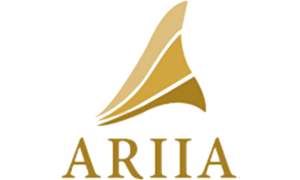
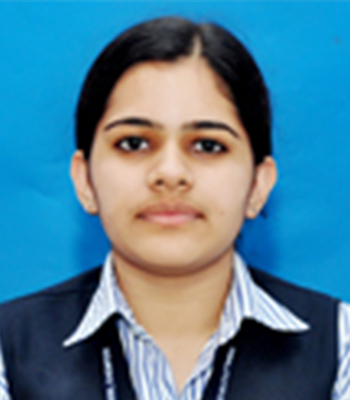
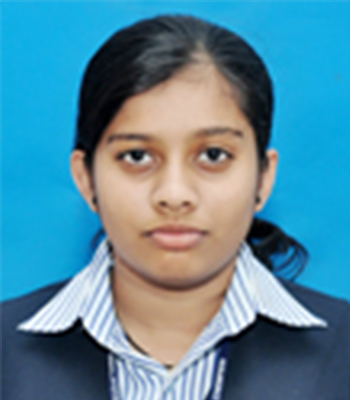
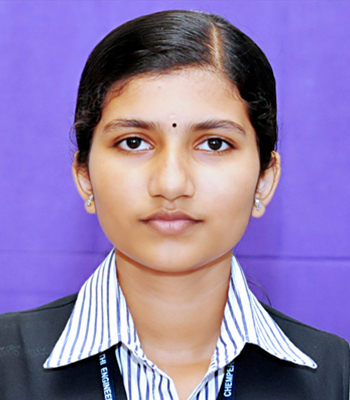
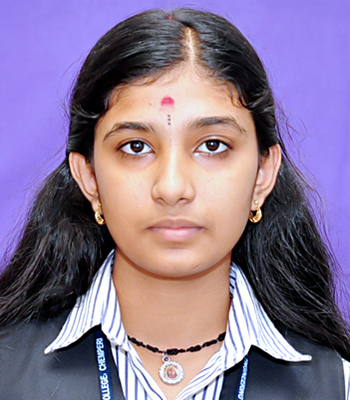
.jpg)
.jpg)
